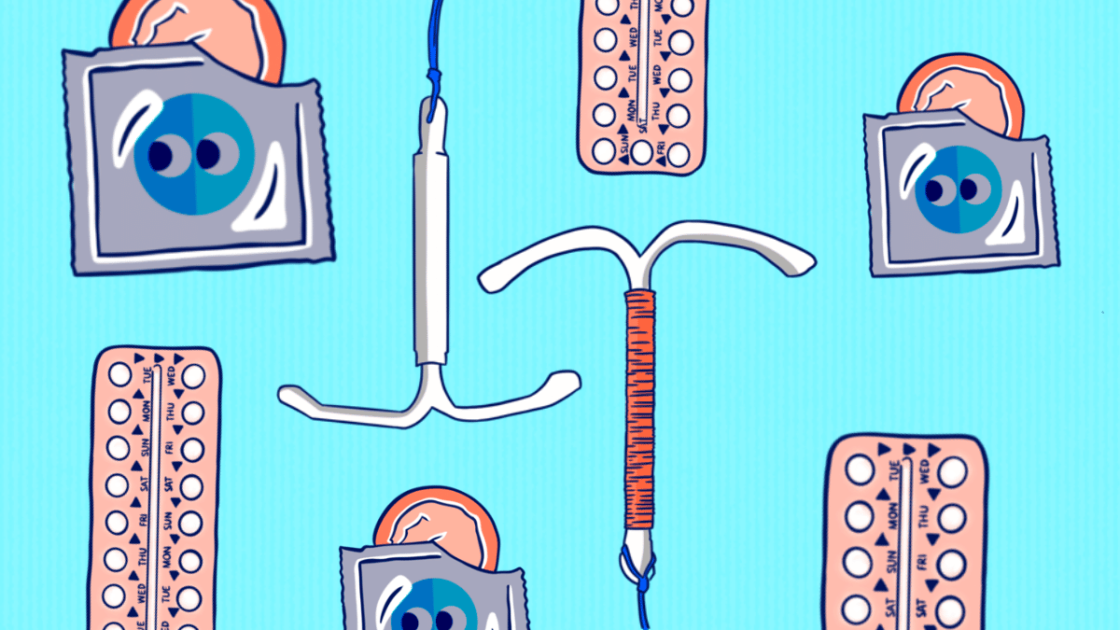What contraception is free in Ireland?
What contraception is right for you?

The HSE has launched a new service to provide free prescription and emergency contraception for 17 to 35-year-old women and people.
The free contraception service will cover the full cost of prescription contraception, including the cost of:
- GP or doctor’s appointments – to talk about contraception options and for repeat prescriptions when needed
- Any prescriptions given by your doctor – these will be given free of charge at participating pharmacies
- Your choice of contraception – from a wide range of short-term and long-term contraceptives such as the patch, pill, ring, implant, injection and IUDs
- Fittings and removals of implants and IUDs or IUSs (coils)
- Any check-ups or other follow-up care needed, relating to your implant or coil
- Emergency contraception (morning-after pill).
Full details, including how to access free contraception, and information about contraception choices is available on sexualwellbeing.ie.
To access the service you will need to give a participating GP your:
- PPS number
- Date of birth
- Name
- Address
Emergency contraception can be provided by participating pharmacies directly, without the need for a GP visit. You will need to give a participating pharmacy your PPS number, date of birth, name and address.
There are so many different options available for contraception, so it’s good to take the time to figure out which is the right one for you.
Contraception that protects against STIs
These four methods are the only ones that provide protection against STIs.
Condoms
Condoms are a popular form of contraception, and the most effective when used correctly. They are the best method for helping prevent STIs, and they can protect against pregnancy too.
Use for:
- Vaginal sex
- Anal sex
- Oral sex on a penis
Internal condoms
Internal condoms are another great way to protect against pregnancy and STIs. They’re similar to the condom but are inserted into the vagina, instead of covering the penis.
Use for:
- Vaginal sex
Dental dams
Dental dams protect against STIs during oral sex performed on a vagina or anus.
Use for:
- Vaginal-oral sex
- Anal-oral sex
Contraception that protects against pregnancy
Remember that the forms of contraception in the list below will not protect against STIs, so it’s best to use a condom at the same time.
Contraceptive implant
The contraceptive implant is an extremely effective way of preventing pregnancy, and they last for a long time.
Contraceptive patch
The contraceptive patch is similar to the contraceptive implant, but you have to replace it every 7 days.
Contraceptive pill
The contraceptive pill is a very popular and effective way of preventing pregnancy, and it’s widely available.
Diaphragm and cap
The diaphragm and cap is a flexible rubber cap that fits inside the vagina. It is effective in preventing pregnancy, but not quite as effective as the contraceptive pill.
Emergency contraception
Emergency contraception, also known as the morning after pill, is a pill you can take to prevent pregnancy, up to 72 hours after having unprotected sex. It’s also important to have an STI test after unprotected sex, as emergency contraception cannot prevent an STI.
Contraceptive injections
Contraceptive injections involves getting an injection, and the protection lasts for 12 weeks, when you will need to get another.
Sterilisation
Sterilisation is a permanent surgical procedure that makes a person incapable of having children. It is very effective in preventing pregnancy, but it is not a good option for young people, as it is irreversible.
The coil – IUD/IUS
The coil, also known as an IntraUterine Device (IUD) or an IntraUterine System (IUS), is a small, T-shaped device made of either plastic or copper that is inserted into the uterus and used as a form of contraception. It is very effective in preventing pregnancy.
Vaginal ring
The vaginal ring is a small, clear plastic ring that is inserted into the vagina for three weeks each month. During this time, the ring releases a low dose of hormones that prevent pregnancy by stopping the release of a mature egg (ovulation).
Protecting your sexual health when on contraception
There are many great options to help protect your sexual health, but none of them are 100% effective. Even if you use condoms every time you have penetrative sex, you are still at risk of getting genital warts and herpes, as these can be passed through skin-to-skin contact. Going for an STI check or taking a home STI testing kit with a partner before having sex, can be a great way of protecting yourself and those you have sex with against STIs and HIV. However, not all STI checks check for all STIs, so it is important to speak to your healthcare provider and ask them what are being tested for as part of your screening.
Discussing with your sexual partners the type of contraception or protection options available to you, and agreeing on a type that works for everyone involved can help to reduce the risk of pregnancy, STIs and HIV. Looking out for sores or symptoms on a partner’s genitals before having sex with them, can help to identify STIs that they may not be aware of. If you do see any signs that someone may have an STI, do not have sex with them until you know for certain it is safe to do so. Asking someone about their sexual health history is the responsible thing to do before having sex, and it should not be taken as an insult if someone asks you about yours.
Remember: The age of sexual consent in Ireland is 17. If you’re over 16, you can consent to medical treatment including any treatment or tests needed.
Feeling overwhelmed and want to talk to someone?
- Get anonymous support 24/7 with our text message support service
- Connect with a trained volunteer who will listen to you, and help you to move forward feeling better
- Whatsapp us now or free-text SPUNOUT to 50808 to begin.
- Find out more about our text message support service
If you are a customer of the 48 or An Post network or cannot get through using the ‘50808’ short code please text HELLO to 086 1800 280 (standard message rates may apply). Some smaller networks do not support short codes like ‘50808’.






